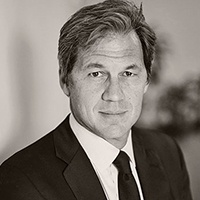Chimayo Criminal Lawyer, New Mexico
Sponsored Law Firm
-
 x
x

Click For More Info:
-
De Oppresso Liber Law
223 N Guadalupe #567 Santa Fe, NM 87501» view mapCriminal Defense Law Liberating The Oppressed
De Oppresso Liber Law has been helping clients with catastrophic personal injury cases and serious crimes for more than 30 years.
505-695-6183
John W. Day
✓ VERIFIEDCriminal, Civil & Human Rights, Wrongful Death, Accident & Injury, Employment
John W. Day is an attorney who practices in criminal defense, civil litigation, wrongful death and government misconduct/civil rights litigation. J... (more)
Aaron John Boland
Federal Trial Practice, Criminal, Civil Rights, Personal Injury
Status: In Good Standing
Adam Seth Baker
Other, Divorce & Family Law, Criminal, Accident & Injury
Status: In Good Standing Licensed: 27 Years
 William H. Snowden Santa Fe, NM
William H. Snowden Santa Fe, NM Practice AreasExpertise
Practice AreasExpertise

